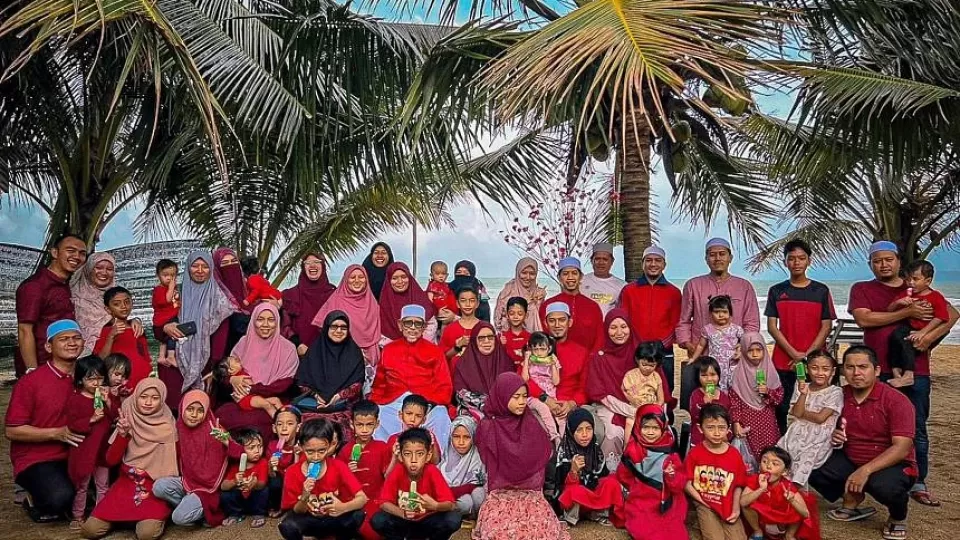January 27, 2023
KUALA LUMPUR – Opposition bloc Perikatan Nasional (PN) has stepped up efforts to boost its image among non-Malay voters, as it sets its sights on winning the racially mixed western states held by Prime Minister Anwar Ibrahim’s Pakatan Harapan (PH) in the state elections.
New governments must be elected in Penang, Selangor and Negeri Sembilan by mid-2023, but support from ethnic minority voters, especially the Chinese – who make up more than a fifth of the population nationwide – is crucial for PN to expand its reach.
State elections must also be held in three Malay-dominated northern states – Kedah, Terengganu and Kelantan – controlled by Parti Islam SeMalaysia (PAS), a key component of PN.
The party’s 43 MPs make it the largest bloc not just within PN, but also in the federal Parliament after the general election threw up a hung Parliament.
Most observers believe PN – which also includes Parti Pribumi Bersatu Malaysia and Parti Gerakan Rakyat – will retain the three states.
Gerakan, nominally multiracial but nearly entirely non-Malay, is also determined to return to power in Penang 15 years after its four-decade rule there was ended.
Analysts and PH leaders have ridiculed Gerakan president Dominic Lau’s bold claim, but senior figures in the ruling coalition told The Straits Times that they are expecting stiff battles in Negeri Sembilan and Selangor, Malaysia’s richest state.
Sources also said that PN sees an opportunity to wrest these two central states led by Datuk Seri Anwar’s Parti Keadilan Rakyat, after PH controversially teamed up with the graft-riddled Umno to form the federal government.
“How we proceed with any cooperation with (Umno-led) Barisan Nasional (BN) could be crucial. We could gain Malay support but also be punished by voters for expanding the relationship,” a Selangor government official said, revealing that BN’s request for 13 seats in the state would require the other PH parties to give up several wards.
Negeri Sembilan PN has said it is focusing on the 21 seats with more than 60 per cent of Malay voters out of the 36 in the state assembly. In Selangor, 34 out of 56 wards have such Malay-dominated electorates.
It would be an uphill task to win a majority of seats in these two states purely on the basis of Malay support.
Instead, PN must not only retain the lion’s share of the Malay majority it took at the general election, but claim at least some backing from minorities which practically gave no support to the federal opposition bloc.
However, PN – led by former premier Muhyiddin Yassin – has since November’s general election espoused racial and religiously tinged rhetoric that was a feature of its campaign to woo Malay Muslims.
PAS president Hadi Awang has been at the forefront of this messaging, accusing the federal government – which includes all MPs in the 222-strong Parliament except the 74 from PN – of Islamophobia and warning Malays who failed to vote that they were “disobeying God’s command”.
But just as Chinese New Year approached, he and his colleagues shifted their focus to graft.
Last week, he accused the so-called “unity government” of banding together to protect “liars, thieves and robbers” after Umno resolved to bar any challenge against party president Zahid Hamidi at upcoming leadership polls despite him being on trial for 47 counts of graft.
At the same time, Tan Sri Hadi insisted that Islam compelled its followers to pursue inclusiveness, just not with criminals.
In the lead up to and during the long Chinese New Year weekend, the Marang MP posted on social media several celebrations with his “Chinese family” members, including his daughter-in-law.
“My grandfather adopted many Chinese, regardless of whether they embraced Islam. They are a part of my family. During World War II… my grandfather gave refuge to a non-Muslim Chinese and hid him in his garden,” he wrote on Sunday. “Let us make this celebration a way for us to strengthen the bond between the many races in Malaysia.”
He joined other PN leaders, including Tan Sri Muhyiddin, at Gerakan’s open house celebrations on Sunday and tossed yee sang, similar to yu sheng in Singapore, a tradition which some conservative Muslims shun.
Kedah chief minister Sanusi Md Nor, PAS’ election director, also announced on Tuesday that the state would make Feb 5 a public holiday in conjunction with Hindu festival Thaipusam, which is an annual day off only for the federal territories and five other states.
Most Hindus in Malaysia are ethnic Indians who make up less than 7 per cent of the population.
“The Indian community is less hardened towards PAS because they don’t have a natural home. But it will take a lot to convince Chinese not to go with PH,” Singapore Institute of International Affairs’ senior fellow Oh Ei Sun told ST.
“It may be more effective convincing them not to turn out.”


